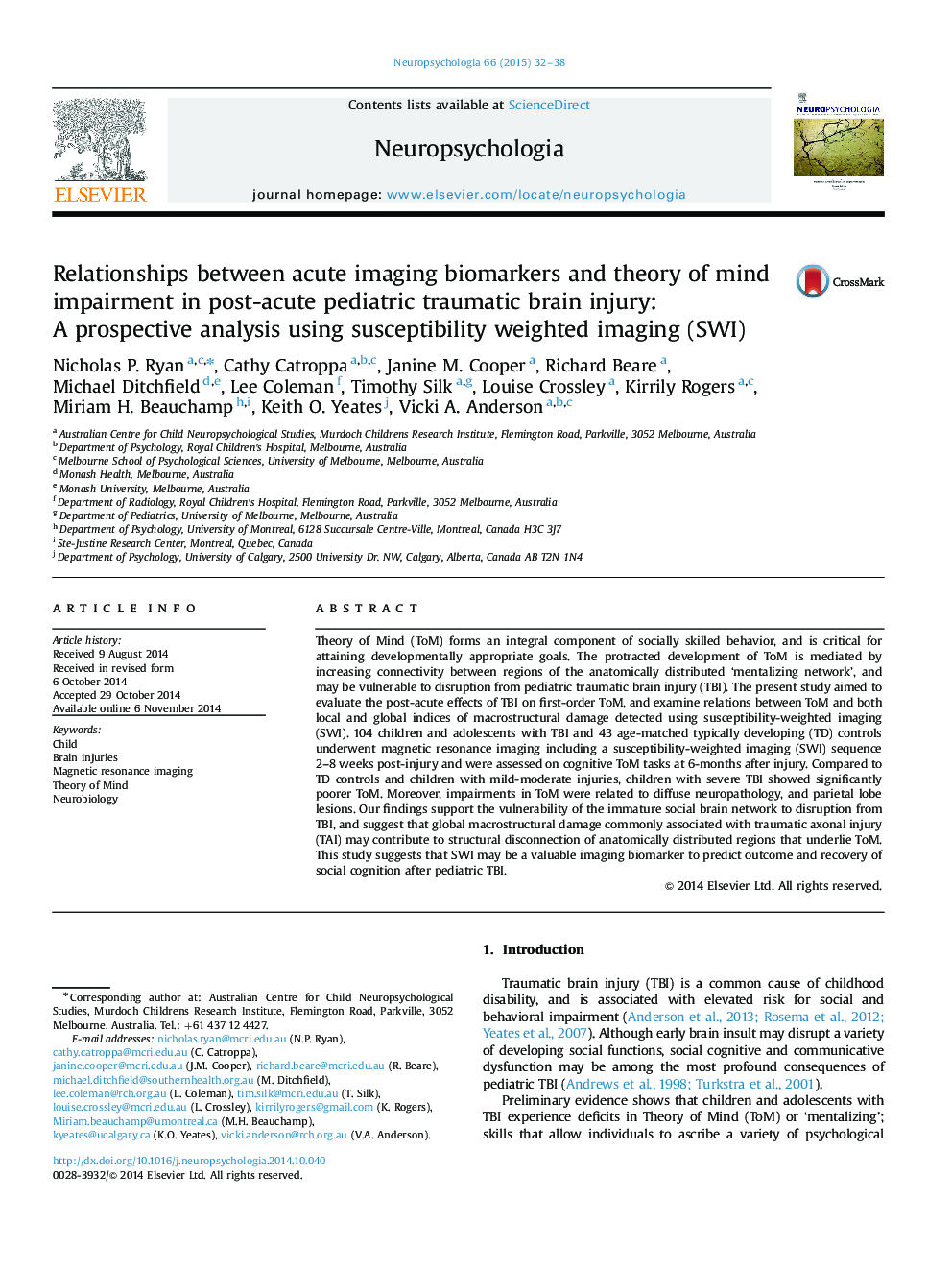| Article ID | Journal | Published Year | Pages | File Type |
|---|---|---|---|---|
| 7320590 | Neuropsychologia | 2015 | 7 Pages |
Abstract
Theory of Mind (ToM) forms an integral component of socially skilled behavior, and is critical for attaining developmentally appropriate goals. The protracted development of ToM is mediated by increasing connectivity between regions of the anatomically distributed 'mentalizing network', and may be vulnerable to disruption from pediatric traumatic brain injury (TBI). The present study aimed to evaluate the post-acute effects of TBI on first-order ToM, and examine relations between ToM and both local and global indices of macrostructural damage detected using susceptibility-weighted imaging (SWI). 104 children and adolescents with TBI and 43 age-matched typically developing (TD) controls underwent magnetic resonance imaging including a susceptibility-weighted imaging (SWI) sequence 2-8 weeks post-injury and were assessed on cognitive ToM tasks at 6-months after injury. Compared to TD controls and children with mild-moderate injuries, children with severe TBI showed significantly poorer ToM. Moreover, impairments in ToM were related to diffuse neuropathology, and parietal lobe lesions. Our findings support the vulnerability of the immature social brain network to disruption from TBI, and suggest that global macrostructural damage commonly associated with traumatic axonal injury (TAI) may contribute to structural disconnection of anatomically distributed regions that underlie ToM. This study suggests that SWI may be a valuable imaging biomarker to predict outcome and recovery of social cognition after pediatric TBI.
Related Topics
Life Sciences
Neuroscience
Behavioral Neuroscience
Authors
Nicholas P. Ryan, Cathy Catroppa, Janine M. Cooper, Richard Beare, Michael Ditchfield, Lee Coleman, Timothy Silk, Louise Crossley, Kirrily Rogers, Miriam H. Beauchamp, Keith O. Yeates, Vicki A. Anderson,
